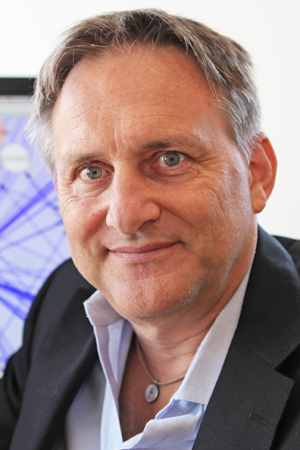
Andrea Califano, Dr
The migration away from “one-size-fits-all” medicine, particularly in the areas of cancer detection and treatment, holds great promise for patients and the field of precision medicine. Demand and jobs are increasing for researchers, clinicians and professionals who are at home collecting, analyzing and using more and newer forms of data, according to a recent feature reported in Science magazine which spotlights Dr. Andrea Califano , founding chair of the Department of Systems Biology .
In the field of oncology, innovations continue to grow rapidly in precision, or targeted medicine, as clinicians seek to find better treatments for specific kinds of cancer, rather than take a blanket approach via the traditional trifecta of radiation, chemotherapy, and surgery. To do so, they must test patients, note mutations, and identify biomarkers to determine what treatments could work best with the fewest side effects.
Scientific breakthroughs, in these areas and more, have led to greater understanding of genes and their functions and have created new opportunities for precision medicine—and for those with technical, research, and clinical skills eager to work in this ever-expanding field. Special consideration will be given to those job applicants who can perform big data analysis and multidisciplinary research. However, new jobs will also emerge in previously unseen areas, such as business, translational medicine, and genetic counseling.
New and powerful tools have aided the precision medicine movement. The Human Genome Project, the first complete mapping of human genes, published its preliminary results in 2001. The project’s numerous benefits include knowing the location of the approximately 20,500 genes identified in the body and gaining a clearer understanding of how genes areorganized and operate.